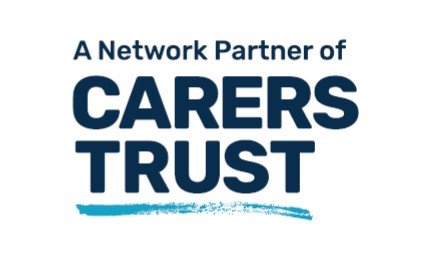If your local council carries out a care needs assessment on your cared for person and agrees they have eligible needs for care and support at home, they will do a means test. This will take into account their income and savings. Unless they’re going into a care home, this won’t take into account the value of their property.
Can I get financial support to pay for homecare?
Make sure the person needing care is claiming all the benefits they’re entitled to.
- Attendance Allowance is a benefit for people over State Pension age who need extra help to stay independent at home, due to an illness or disability.
- If they’re under State Pension age, they may be eligible for Personal Independence Payment instead
- If you are their carer, you could be eligible for Carer’s Allowance.
These benefits aren’t means-tested, so don’t take into account income and savings. To find out more, click here to jump to our Benefits Advice Pages.

How does paying for care work?
Care at home arranged by a local council isn’t usually free. In order to arrange social care you need to first arrange a care needs assessment with the council.
After the care needs assessment, and an agreed care and support plan, there will be a financial assessment, also known as a means test. This is where your local council will ask about finances and income to work out how much needs to be contributed to the costs of the care.
What does the means test involve?
The means test is when the local council looks at income, savings and property of the person needing care to calculate how much they’ll need to contribute towards the cost of the care and support.
If they need care in order to stay in their own home, the means test won’t include the value of their property.
Here’s how the means test for social care will look at income and savings, and how this will affect what is paid for care.
Means Test for Social Care
| Their capital | What they will have to pay |
|---|---|
| Over £23,250 | They must pay full fees (known as being self-funding). |
| Between £14,250 and £23,250 | The local council will fund some of their care and they’ll have to contribute the rest. |
| Less than £14,250/td> | This will be ignored and won’t be included in the means test – the local council will pay for the care. However, they will still take any eligible income into account. |
Minimum Income Guarantee
Certain types of income, such as money from certain disability benefits and pensions, may not be counted in the means test. This is the same for certain types of capital. All other income and capital can be taken into account.
If all their eligible income is taken into account in the means test, an individual must be left with an income of £189.00 per week, if they’re single and above Pension Credit qualifying age. This is known as the Minimum Income Guarantee.
Basically, a service user is allowed a Minimum Income, (the amount of which differs depending on age and circumstances), any costs directly related to their housing and an allowance for Disability Related Expenditure (DRE); any income in excess of this are considered available to be used towards social care contributions.
If they’re eligible for financial support to pay for homecare, the local council can arrange the homecare services. Alternatively they/you can choose to receive direct payments and arrange homecare yourself.
How will their income be treated in the means test?
Certain types of income, such as money from certain disability benefits, may not be counted in the means test. All other income can be taken into account.
Make sure they get all of their benefits and entitlements. That’s because the means test will assume they are receiving all the benefits they are entitled to, even if they aren’t already claiming them.
If they and someone else jointly hold capital, such as a savings account, it will usually be treated as divided equally between the two of them.
Will they have to sell their home to pay for care?
Many people worry that they will have to sell their home to pay for social care. In some situations, their home won’t be taken into account in the means test. There are a few circumstances where this applies:
If they need short-term or temporary care in a care home, their home won’t be in the means test.
If their care home is permanent, it won’t be counted if it’s still occupied by:
- their partner or former partner, unless they are estranged from them
- their estranged or divorced partner IF they are also a lone parent
- a relative who is aged 60 or over
- a relative who is disabled
- a child of theirs aged under 18
If their property is going to be included in the permanent care home means test, the council must ignore it for the first 12 weeks of their care. This is to give them space to decide what to do with their property and paying fees, for example whether to enter into a deferred payment agreement with the council. They will likely qualify for help with fees from the council for the 12 week period if their other capital assets are under £23,250.
What if they give away some of their money?
People often think about giving away some of their savings, income or property to avoid paying likely care costs, and to give something to their relatives or charity, for example.
If the council thinks that a person has done this to avoid paying care fees they may still assess them as if they still had the money or property that they have given away. This is referred to as deprivation of assets.
How much will they have to pay?

After the means test the local council should provide a written record of their decision of what a person will have to pay, what they will pay, and how they calculated it.
How much a person will have to pay will depend on:
- what type of care and support needed.
- each person’s own personal circumstances.

If they’re going into a care home, they should not be left with less than £24.90 a week after any contribution to their fees. This is known as the Personal Expenses Allowance.
If they’re getting some aid to home adaptations, paying for these depends on what type of adaptations or equipment are needed. If the council agree a person needs aids or equipment or a minor home adaptation, it must provide this for free.
Are there any other exemptions from paying contributions towards Social Care?
If the service user qualifies for Continuing Health Care (CHC), qualifies for Section 117 After-care under the Mental Health Act or has a diagnosis of Creutzfeldt-Jakob disease (CJD) then they do not have to contribute towards their social care.
What counts as deprivation of assets?
Deprivation of assets applies when a person intentionally reduce their assets, such as money, property or income, so these won’t be included when the council calculates how much a person needs to pay towards the care they’ll receive.
When the council is deciding whether getting rid of property and money has been a deliberate deprivation of assets, they will consider two things:
- An individual must have known at the time they got rid of their property or money that they needed or may need care and support
- Avoiding paying for care must have been a significant reason for giving away their home or reducing their savings.
It’s not just giving away their money that could be seen as a deliberate deprivation of assets. Different methods of reducing their money or property could count too, including:
- giving away a lump sum of money.
- transferring the title deeds of their property to someone else.
- suddenly spending a lot of money in a way which is unusual for their normal spending.
- gambling the money away.
- using savings to buy possessions, such as jewellery or a car, which would be excluded from the means test.
What if I gave my money or home away a long time ago?
The timing is important. The council will look at when they reduced their assets and see if, at the time, they could reasonably expect that they would need care and support. The local authority must decide based on all the case facts and clear reasons, which could be challenged.
If they were fit and healthy and could not have imagined needing care and support at the time, then it may not count as deprivation of assets.
Are You Caring for a Child Under 18 with additional needs?
If you care for a child under 18 with additional needs it is advisable to get advice from a specialist organisation of the Council’s Joint Service for Disabled Children before considering any referrals or changes to services.
A good first step is to contact ECC or parent carer groups such as :
These organisations supports families of children with special needs.
Another option is to contact the Special Educational Needs Co-ordinator at your child’s school or pre-school. Or you can speak to your Doctor or other Health Professional.
- Enfield Council has details of the local offer support for disabled children and their families. Click here for more information: https://new.enfield.gov.uk/services/children-and-education/local-offer/
What are Direct Payments(DP)? Is a Carer’s DP different from my loved one’s DP?

